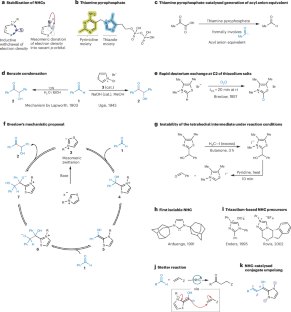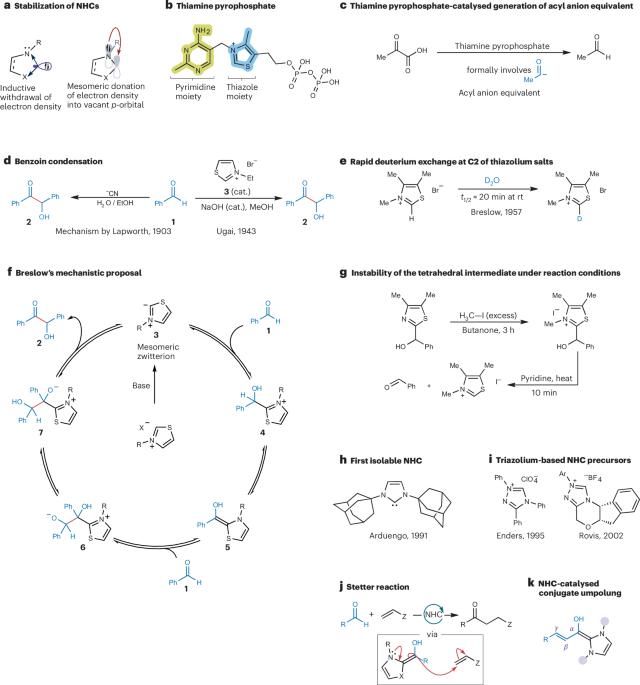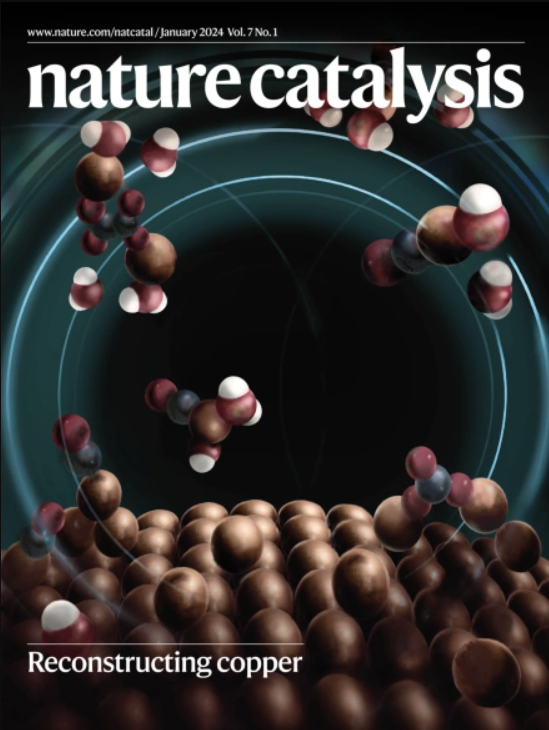N-heterocyclic carbenes 有机催化的诞生
IF 42.8
1区 化学
Q1 CHEMISTRY, PHYSICAL
引用次数: 0
摘要
硫胺素是一种常见的酶辅助因子,可催化安息香缩合反应。从 1943 年开始,人们提出了各种各样的机理建议来解释这种有趣的转化,直到罗纳德-布雷斯洛(Ronald Breslow)在发现该反应约 15 年后发表了两篇开创性论文,才帮助解决了机理难题,并预示着 NHC 有机催化的诞生。本文章由计算机程序翻译,如有差异,请以英文原文为准。


Birth of organocatalysis by N-heterocyclic carbenes
Thiamine, a common enzymatic cofactor, catalyses the benzoin condensation. From 1943, a panoply of mechanistic proposals were invoked to explain the intriguing transformation until two seminal papers by Ronald Breslow about 15 years after the discovery of this reaction helped resolve the mechanistic conundrum and heralded the birth of NHC-organocatalysis.
求助全文
通过发布文献求助,成功后即可免费获取论文全文。
去求助
来源期刊

Nature Catalysis
Chemical Engineering-Bioengineering
CiteScore
52.10
自引率
1.10%
发文量
140
期刊介绍:
Nature Catalysis serves as a platform for researchers across chemistry and related fields, focusing on homogeneous catalysis, heterogeneous catalysis, and biocatalysts, encompassing both fundamental and applied studies. With a particular emphasis on advancing sustainable industries and processes, the journal provides comprehensive coverage of catalysis research, appealing to scientists, engineers, and researchers in academia and industry.
Maintaining the high standards of the Nature brand, Nature Catalysis boasts a dedicated team of professional editors, rigorous peer-review processes, and swift publication times, ensuring editorial independence and quality. The journal publishes work spanning heterogeneous catalysis, homogeneous catalysis, and biocatalysis, covering areas such as catalytic synthesis, mechanisms, characterization, computational studies, nanoparticle catalysis, electrocatalysis, photocatalysis, environmental catalysis, asymmetric catalysis, and various forms of organocatalysis.
 求助内容:
求助内容: 应助结果提醒方式:
应助结果提醒方式:


